Without even realizing it, you wind up participating in toxic parenting. Here’s how to stop being a toxic parent and create a healthy environment for your children.
Toxic parenting sets the stage for abusive adults and starts a cycle that is hard to escape. Thomas Fiffer offers 10 dos and don’ts to keep your parenting healthy and safe.
Perhaps the worst thing a parent can hear from a grown-up child is, “I want you out of my life. You’re toxic.” It’s a death sentence for the relationship, spelling a long period of estrangement if not a permanent break.
It may be the healthiest decision for the child, but it is a heartbreaking one that carves a deep wound in both psyches, making the road to reconciliation arduous and uncertain.
No parent is perfect. We’re all human, and we all make mistakes, including some whoppers. But there’s a difference between screwing up while providing healthy love and presiding over a psychologically damaging childhood that will necessitate a lifetime of healing.
The steps outlined below are for concerned parents who want to do things right and are willing to examine themselves critically.
They presuppose a healthy degree of self-awareness and the desire and ability to make positive changes. They do not address behavior caused by substance abuse or serious mental illness. And they are only one man’s opinion.
How To Stop Being A Toxic Parent? Here Are 10 Simple Ways
1. Be the bigger person.
You’re not only literally the bigger person, but you’re also the grown-up. Act like one. After the fight, be the one who breaks the silence, extends the olive branch, and works to restore healthy communication.
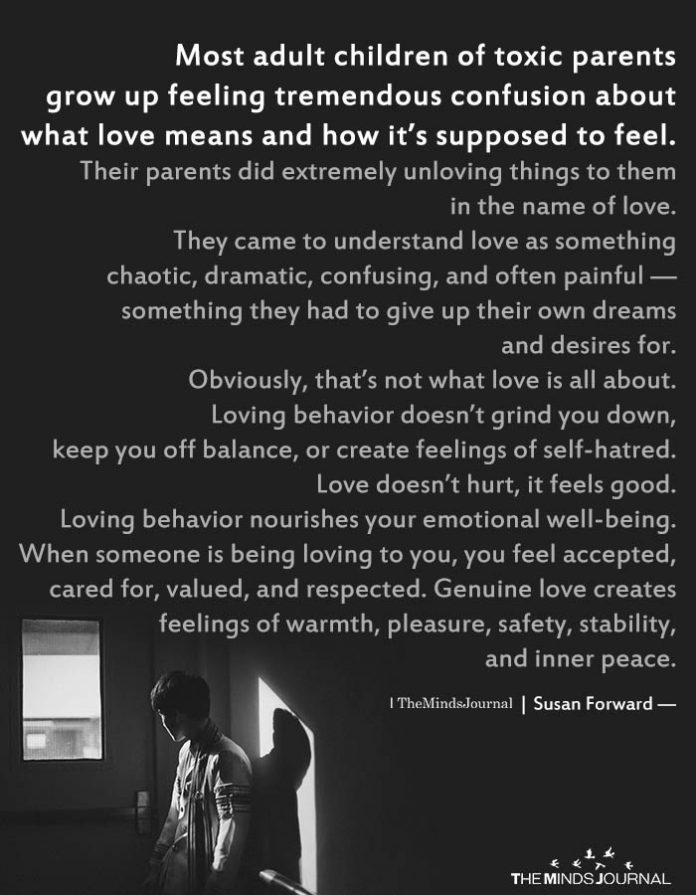
You may have been right, but if being right is what parenting is about for you, you’re going to alienate your kid. Apply the advantages of maturity for good. Step back and process. Use your judgment. And step in with determination not to be right but to make things right between the two of you.
Kids are much less likely to remember whether you won or lost a particular fight or argument than to recall exactly how you made them feel.
2. Don’t pathologize your children to cover up your own poor parenting skills.
Labeling a child or using (or worse, seeking) a diagnosis, such as ADD/ADHD or a personality disorder, to explain and excuse behavior that you should be addressing—or that mirrors your unhealthy modeling—places a lead weight on your child that he or she will be eager to lift at the onset of adulthood.
The same goes for blaming undesirable behavior on bad genes—meaning your partner’s. It’s one thing to be realistic about and treat an actual condition.
It’s entirely another to indoctrinate your child with the inevitability of a limited, unhappy life due to inescapable deficiencies while refusing to address your own failings.
Related: How Toxic Family Dynamics Can Cause C-PTSD In Emotionally Intense Children
3. Don’t make their drama your drama.
Your kid gets the lead in the play or scores the winning run, basket, or goal in the championship game, or on the flip side, struggles with depression or endures a nasty breakup. Who’s triumphing or suffering? Who deserves the credit or sympathy?
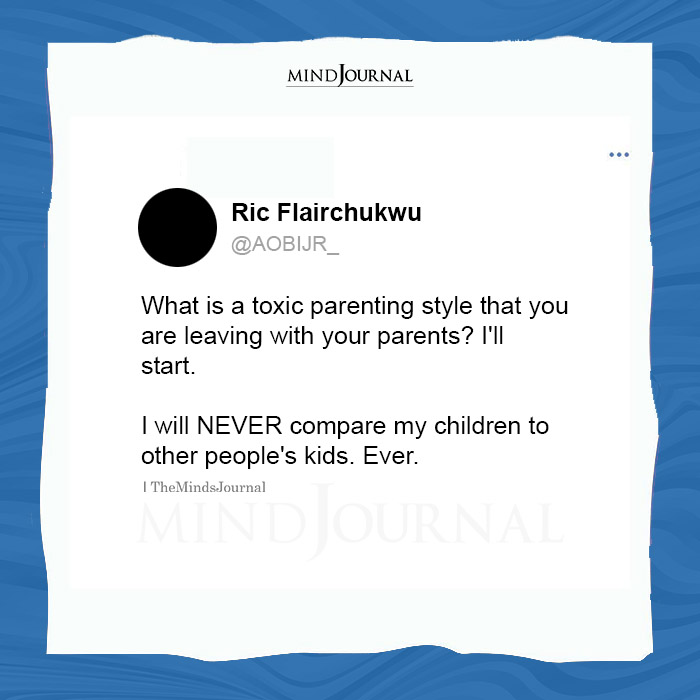
Put the focus where it belongs—on your child—and keep it there. Sure, you have feelings. You share the joy in your kids’ accomplishments and sorrow for their troubles.
But don’t hang your emotional state on their emotional state or co-opt their experiences and feelings by making it all about you.
4. Understand the difference between criticizing and correcting.
Children need guidance to stay on the right path. For many, discipline, self-control, and healthy habits don’t come naturally—they’re learned. Be a guide, not a critic. Don’t call your kid lazy or stupid. Teach your child a work ethic and help build his or her academic skills.
Challenge and goal setting motivates people and makes them try harder. Personal insults break their spirit and make them want to give up. Criticism weakens, while correction strengthens and opens the door for positive reinforcement.
5. Learn impulse control.
We all get upset. We all yell. And at times, we all lose it when our children push our specific buttons or do incredibly annoying or obnoxious things. When this happens, we feel unheard, hurt, and disrespected, and tempted to strike back—with harsh words, severe punishment, or physical blows.
Learning how to contain your immediate reaction and formulate an appropriate response will not only model balance to your child but also create a calmer dynamic and stop you from saying and doing things you will later regret.
6. Remember that kids are vulnerable.
We often forget this, because they’re so resilient. They cry, and then they stop crying. The next minute, or the next hour, their mood has changed, and everything is back to normal, at least on the surface.
But if they’re integrating painful experience, it’s changing them, and if they’re denying it because it’s too painful to process, they’re looking at a crisis down the road and years, even a lifetime, of therapy.
Children don’t necessarily tell you when their feelings about you have changed when you have lost their respect or endangered their love for you.
They may not even be consciously aware of their own breaking points, but they have them, as we all do, so handle with care if you want them to stay whole.
7. Avoid using guilt and shame as consequences.
Guilt and shame are the sledgehammer and chainsaw in the parenting toolbox—one hits kids over the head, while the other cuts them to the core.
Don’t whine about your hurt feelings if your child doesn’t want to bake cookies or go to the ball game with you. Don’t spout about how embarrassed you—or Aunt Mildred—will be if they fail biology or don’t make the tennis team. And don’t threaten horrors—such as a life of poverty—if your child’s grades don’t improve.
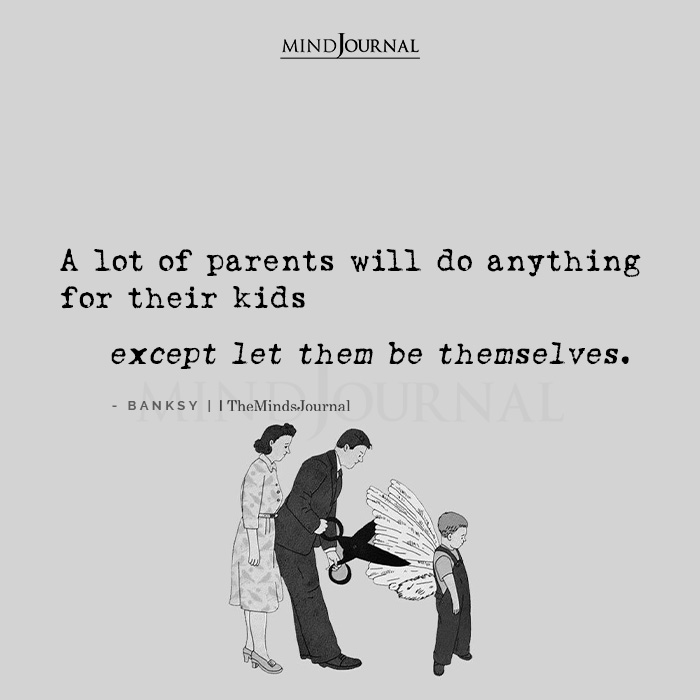
This type of behavior is incendiary and utterly unhelpful. It saps your child’s confidence and makes him or her dependent on you or others for approval. Instead, help them understand their choices and the real consequences of their actions.
8. Don’t smother and infantilize; encourage self-sufficiency.
We love doing things for our kids to make their lives easier and to help them succeed, and it’s our job to set up a good life for them. But there’s a difference between providing assistance and enabling helplessness, between setting the table and putting the food out and cutting it up and feeding it to your kid.
Don’t allow your need to feel needed—which may have roots in your own childhood—to interfere with your child’s need to become self-reliant and independent.
And don’t hover, because ultimately you’re giving your child the message that he or she can’t make it without your help.
Related: 11 Signs of Bad Parenting! Are You Guilty of Them?
9. Master and model healthy conflict resolution with your partner.
A toxic, dysfunctional dynamic with your partner will both impact your child’s ability to function in adult relationships and drive him or her away from your home. It creates a double-bind:
The child grows up vowing not to have the relationship they see you having and at the same time lacking the tools to avoid it.
If your own relationship is volatile or worse, violent, get help. This not only creates a safer environment for your children but also models the importance of solving problems instead of ignoring them or sweeping them under the rug.
10. Practice self-care.
I’ve always believed that many of our worst parenting moments occur when we’re tired, stressed, sick, distracted, or for whatever reasons, internally ragged.
Taking good care of yourself—maintaining good eating habits, exercising regularly, getting out (hire that sitter), and making time to do things you enjoy makes you healthier both physically and psychologically and gives you more energy to deal with your children.
It also prevents you from resenting your kids for the sacrifices you make for them. And resentment is the precursor to contempt.
There are many different parenting styles, and in the absence of the instruction manual, we each find our own way. The advice here is intended to identify behaviors that are and aren’t beneficial to children and conducive to developing a healthy relationship with them once they become adults.
Related: The Narcissistic Parent: 5 Signs You Were Raised By One
Toxic parenting can have damaging effects on a child’s mind, and can even end up haunting them when they become adults.
If you see any of these signs of toxic parenting in yourself, or your partner, immediately work towards changing that before it’s too late. Not only will your children thank you in the long run, you will also have a much healthier relationship with them.
If you want to learn more about the signs of toxic parenting, here’s a video:
Written by Thomas G. Fiffer
Originally appeared on TheGoodMenproject
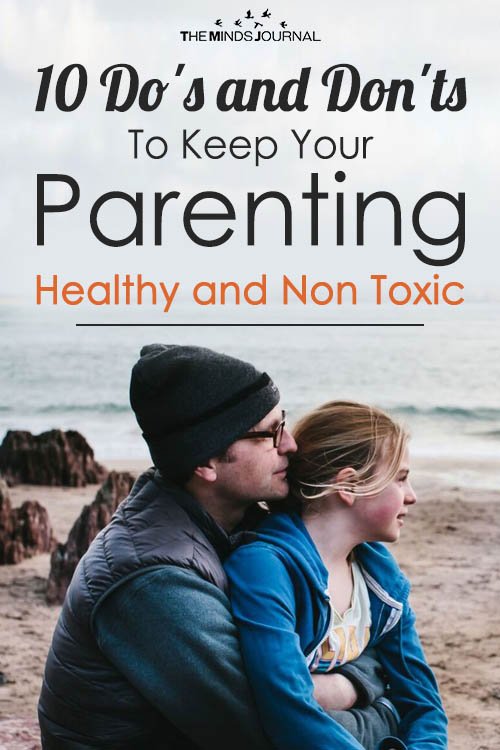
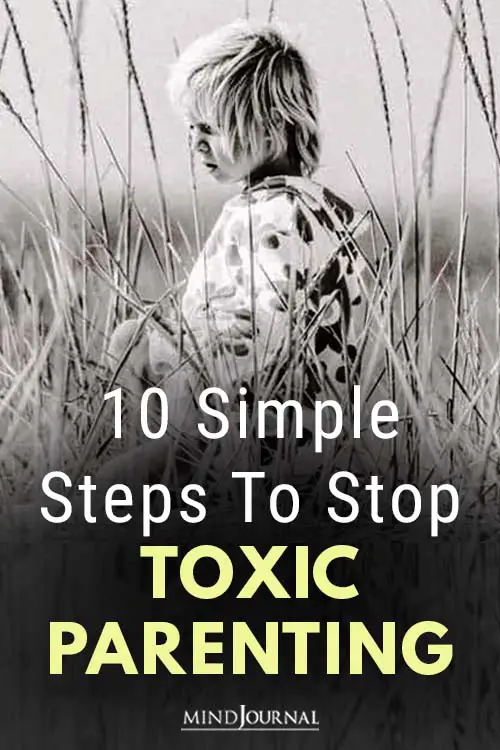
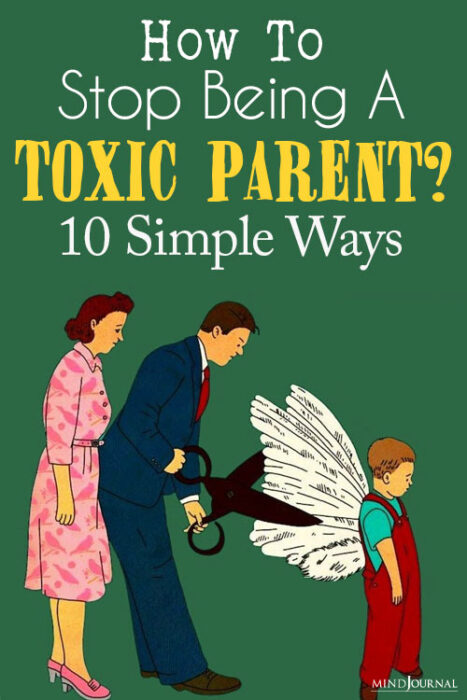
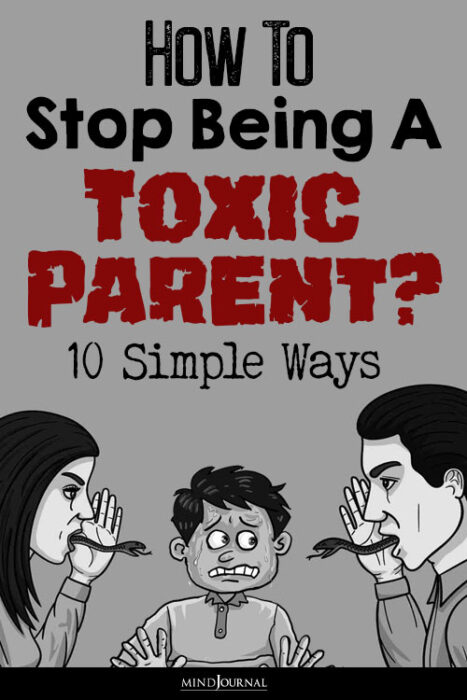
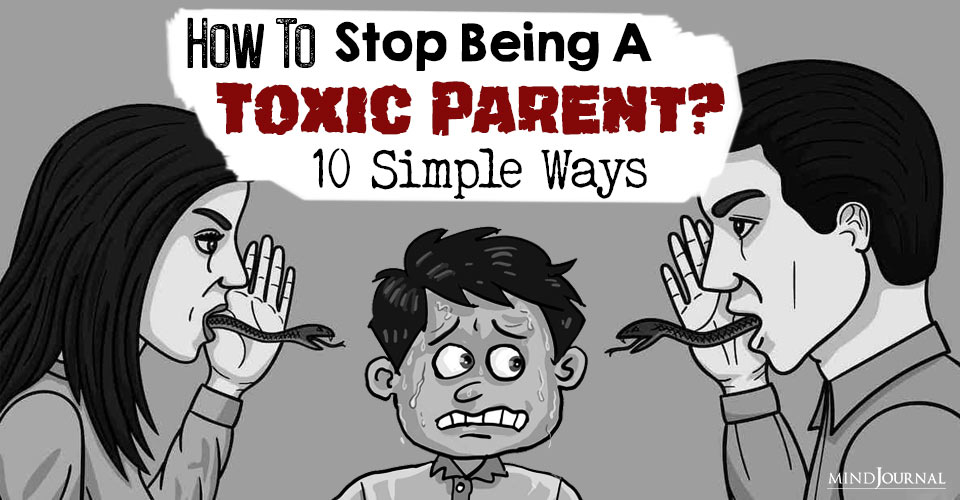







Leave a Reply
You must be logged in to post a comment.